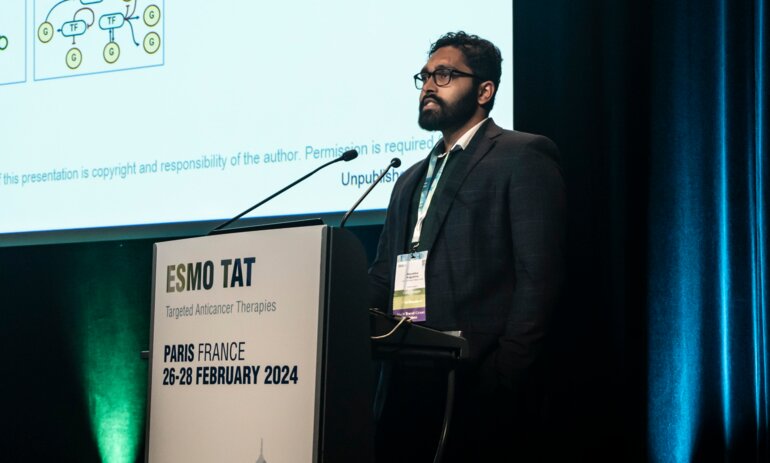
Machine learning may help to uncover new immunotherapy targets
A study proposes a model that is able to learn broad aspects of cancer–immune interactions from early phase trial data

Health emergencies: let’s get prepared without leaving cancer patients behind
ESMO is advocating for secondary and tertiary care levels to be included into international agreements and WHO’s documents to respond to pandemics

Long-term data confirm a survival benefit with adjuvant anthracycline-taxane-based chemotherapy in early breast cancer
Updated analysis of the ABC trials favors anthracycline-based regimens in terms of IDFS and RFI, but no OS, when compared to taxane-based chemotherapy

Perioperative tislelizumab improves survival in resectable NSCLC – a new standard of care?
Encouraging EFS and OS results were presented at an ESMO Virtual Plenary for the use of the immune checkpoint inhibitor prior and after surgery

Actinium-225 shows clinical activity in metastatic castration-resistant prostate cancer
Survival benefits of the radioligand therapy needs to be confirmed in further studies

Immunotherapy combination improves PFS in metastatic castration-resistant prostate cancer
Cabozantinib plus atezolizumab may represent a novel option for patients progressing on first-line hormonal therapy

WHO-ESMO collaboration sets accessible cancer care, prevention and education as priority areas of intervention
In the period 2024-2026, the technical collaboration between the United Nations agency and the Society plans a series of evidence-based activities to improve global cancer care

Anti-cancer vaccine combined with immunotherapy shows promise in melanoma
A phase II trial reports a longer recurrence-free and distant-metastasis free survival with the combination of mRNA and pembrolizumab.

Study shows that immunotherapy initiation at the end of life has increased over time
In US, the trend was more frequently seen at very low-volume and nonacademic centers than at high-volume and academic centers

Neoadjuvant chemotherapy does not improve survival in pancreatic cancer
In the NORPACT-1 study, adjuvant FOLFORINOX shows no additional benefit compared to upfront surgery in patients with resectable pancreatic ductal adenocarcinoma
